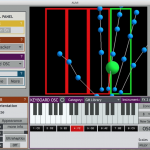Authors:
Erivan Gonçalves Duarte, Isabelle Cossette, Marcelo M. WanderleyPublication or Conference Title:
Frontiers in Computer ScienceEditors:
Emma M. FridAbstract:
Music educators and researchers have grown increasingly aware of the need for traditional musical practices to promote inclusive music for disabled people. Inclusive music participation has been addressed by Accessible Digital Musical Instruments (ADMIs), which welcome different ways of playing and perceiving music, with considerable impact on music-making for disabled people. ADMIs offer exciting possibilities for instrument design to consider and incorporate individual constraints (e.g., missing arm, low vision, hearing loss, etc.) more than traditional acoustic instruments, whose generally fixed design allows little room for disabled musicians inclusivity. Relatively few works discuss ADMIs in the context of disability studies, and no work has investigated the impact of different disability models in the process of designing inclusive music technology. This paper proposes criteria to classify ADMIs according to the medical, social, and cultural models of disability, then applies these criteria to evaluate eleven ADMIs targeting d/Deaf people. This analysis allows us to reflect on the design of ADMIs from different perspectives of disability, giving insights for future projects and deepening our understanding of medical, social, and cultural aspects of accessible music technology.
Publication Details:
Type: |
Journal Paper |
Date: |
10/24/2023 |
Volume: |
5 |
DOI: |
https://doi.org/10.3389/fcomp.2023.1158476 |
ISSN: |
2624-9898 |
IDMIL Participants:
Additional Information:
This article is part of the Research Topic
New Advances and Novel Applications of Music Technologies for Health, Well-Being, and Inclusion
Reviewed by: Alex M. Lucas and Fabio Morreale

